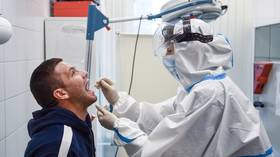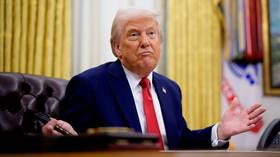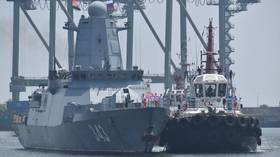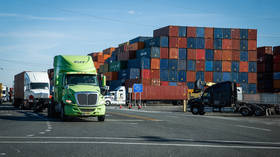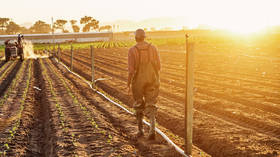How did Russia get a possible Covid-19 vaccine so fast? It took decades of research & won't be for political gain says scientist
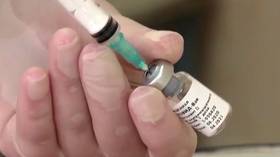
Five months into the pandemic, Russia's first Covid-19 vaccine is in its final development stages, already proven safe. Decades of research – not spying on foreign know-how – led to the breakthrough, a top scientist told RT.
Like their colleagues in the world's other leading nations, Russian scientists have traveled a bumpy road from the discovery of coronavirus to the development of a promising vaccine in record time.
This month, Moscow's famed Sechenov University announced that the first phase of clinical trials for a vaccine had been a success. Some 38 volunteers who took part in human trials have been released with little or no side effects recorded.
Researchers will now push forward, testing the vaccine's efficiency, and prepping it for registration with the Health Ministry. Other prototypes are to follow, with some about to finish phase-one trials – which usually demonstrates the new vaccine's safety for use in humans.
It's fairly easy to grasp why Russia is so keen to get a Covid-19 vaccine. Having reported more than 811,000 cases and 13,249 fatalities, it is among the five countries worst affected by the epidemic. But how did it make a vaccine so fast, given that the coronavirus – or its deadly, crown-shaped SARS-CoV-2 strain – wasn't known to scientists before 2020?
'Nothing can be done from scratch'
Russia has over 20 years of experience in developing technology for producing vaccines. This helped to create the unique Covid-19 vaccine in a very short period of time by normal drug-development standards, Vadim Tarasov, head of Sechenov University's Institute for Translational Medicine and Biotechnology, told RT Arabic in a comprehensive interview.
"Nothing can be done from scratch," he explained. Virologists at the Sechenov Institute and the Gamaleya Institute of Epidemiology and Microbiology – another coronavirus research hub in Moscow – benefited from that "huge backlog" to decode the genome and structure of Covid-19 and quickly create a vaccine prototype.
Having a technological platform and understanding of what is transmitting the virus, you can design a vaccine against almost any disease. The only question is how effective it will be.
The technology behind the Russian vaccine in question is based upon adenovirus, the common cold. Created artificially, the vaccine proteins replicate those of Covid-19 and trigger "an immune response similar to that caused by the coronavirus itself," Tarasov revealed.
In other words, getting immunized is slightly similar to having survived the coronavirus, but without its life-threatening risks. The vaccine, of course, won't be a magical wand preventing everyone from getting sick. It may not stop the entire spread of coronavirus, but will make the symptoms much milder.
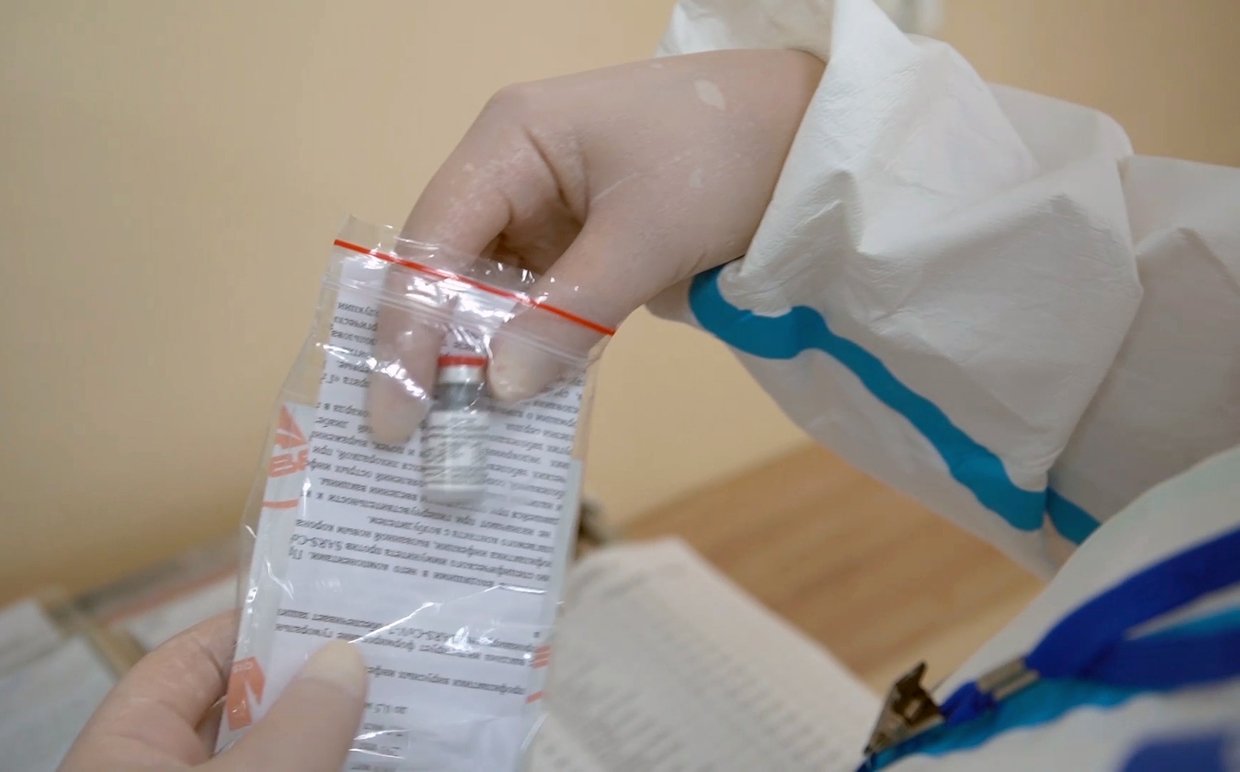
Tarasov said the 38 volunteers received the tested vaccine in the form of a standard injection in the shoulder – "a standard procedure, not very painful, which many people go through – therefore, there is nothing terrible here and nothing fundamentally new."
Russia may claim a breakthrough, but isn't into scoring profit out of it
The vaccine, tested on volunteers aged between 18 and 60, has shown good results "in terms of tolerance," Tarasov revealed. Hence, phase-one trials "have clearly shown that this vaccine is safe and can be used." For the scientist, this was a huge leap in their enormous scientific effort.
We can really talk about a breakthrough as our country has shown itself to be one of the leaders in the global pharmaceutical industry due to the fact that it has retained and developed new competencies in drug development.
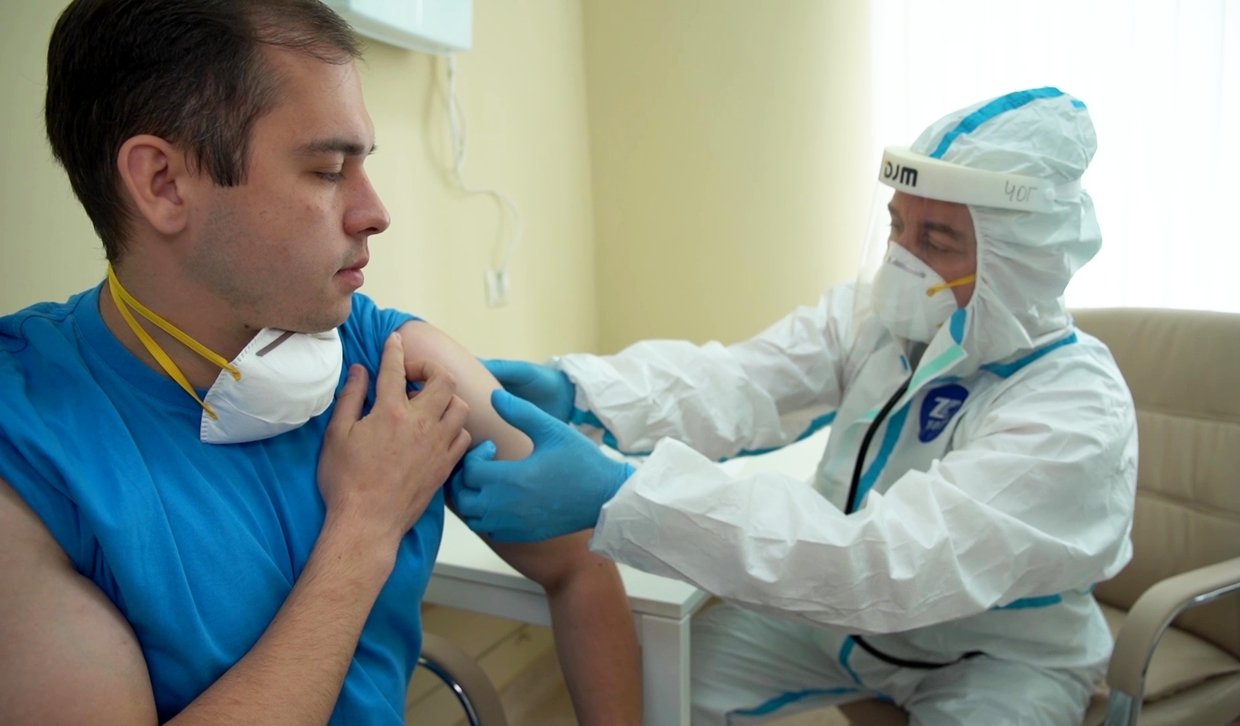
Russian researchers have now proceeded to phase-two trials, which will test the vaccine's efficacy and dosing. Other nations using the same technology are also progressing, with the UK, China, Japan, and the US being the notable other frontrunners.
While their respective health officials insist the preventive cure will become a common public good, there's room for ambition and prestige in the undeclared race to unveil the world's first coronavirus vaccine.
READ MORE: Beijing offers Latin America $1bn loan to help it access China’s coronavirus vaccine
Challenged to give his take on this, Tarasov replied: "The key issue here is who will be the first to help its own citizens and those who need it, because the sooner we get a vaccine, a good and efficient one which can be applied at the required scale – and we're talking a large scale – the faster we can overcome coronavirus."
He insisted that the rationale behind producing the vaccine first is purely humanistic, not political. "Perhaps it's not entirely correct to raise the issue of satisfying political ambitions or [striving] to be the first. It is important to help people and prevent the spread of the pandemic," the scientist concluded.
Like this story? Share it with a friend!
Subscribe to RT newsletter to get stories the mainstream media won’t tell you.
